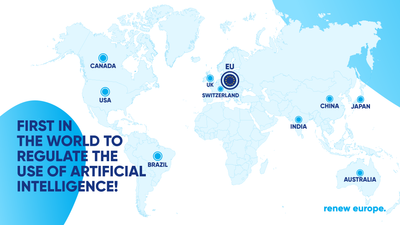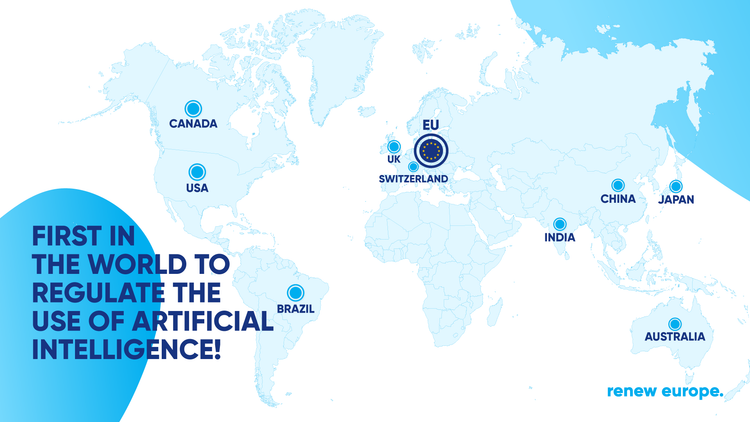
AI Act: Parliament approves landmark deal for world's first horizontal AI laws

The European Parliament has today given the green light to a paradigm-shifting set of rules that will regulate how Artificial Intelligence is governed in Europe and around the world, as it endorsed the inter-institutional deal on the AI Act reached in December.
With this world's first horizontal law on AI, there will from now on be clear obligations for AI tools based on their potential risks and level of harmful impacts on society, with a special focus on those in high-risk areas, such as critical infrastructure, healthcare, and migration and border management.
Co-rapporteur Dragoş Tudorache (Reînnoim Proiectul European al României, Romania) said:
“In the face of unprecedented advances in AI, perhaps the most important accomplishment of the AI Act is that we have forever attached to the concept of artificial intelligence the fundamental values that form the basis of our societies. With that alone, the AI Act has nudged the future of AI in a human-centric direction, in a direction where fundamental rights are protected, where humans are in control of technology, and where we can safely leverage technology to usher in an era of discovery, progress, and unlocked human potential. We now need to focus on implementation, on policy interoperability with our allies, and on leveraging our diplomatic and political weight to promote the European model of AI governance worldwide. “
Throughout the negotiations, the Renew Europe group worked relentlessly to ensure that the Act would protect fundamental rights, democracy, and the rule of law from high-risk AI while at the same time boosting innovation and making Europe a leader when it comes to AI. For instance, the group played a crucial role by ensuring clear rules and safeguards on foundation models and general purpose AI, focus on stronger governance and enforcement, as well as measures, such as regulatory sandboxes, to support innovation and SMEs, and a ban on predictive policing.
IMCO shadow Svenja Hahn (Freie Demokratische Partei, Germany) underlines:
"We achieved important successes to foster AI innovation made in Europe and by European SMEs. For example regarding the risk classification, the establishment of regulatory sandboxes and the harmonisation of the AI definition with the OECD, which ensures international compatibility. I had strived for an even more innovation-friendly regulation, but it is relevant that AI developers now have a legal framework to operate with."
